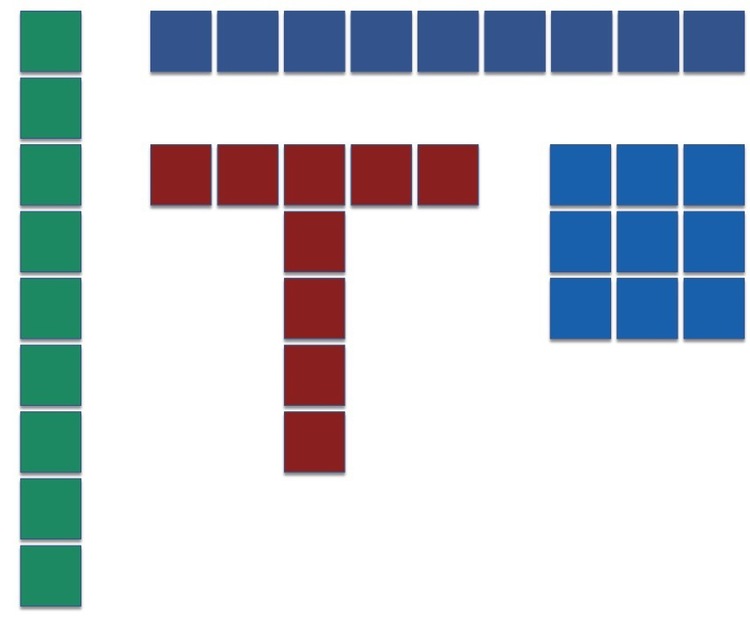Anyone who acquires deep expertise does so at the expense of breadth.—Andrew Hargadon, author, How Breakthroughs Happen
In my experience, people have either breadth or depth. Some people have a little information about almost every topic. After all, most people only have so much room in their heads. Some people have a lot of information about one topic. Do they have breadth on multiple topics or depth on a single topic?
If we assume we all have room for 9 clumps of information out of our 100 billion neurons, we can profile knowledge in a number of ways: I, T, square, and hyphen. Technical people like developers and engineers tend to be I-shaped (depth but not much breadth). Sales and marketing people tend to be hyphen-shaped (breadth but not depth).
And that’s okay.
After all, imagine you’re a sales or marketing person in a large software company. You have hundreds of products and dozens of customers. You’ll need breadth to keep all that in your head. But since product managers typically have responsibility for three products, they’re able to go deeper into those product areas than others. And when developers work on only one product, they can go really deep on it.
I often hear frustration from product managers and developers that our sales people lack depth, but how much do you know about other products at your company?
It’s the depth that makes certain people brilliant at their jobs but it’s breadth that makes them able to look beyond their specialty to other branches of information. Perhaps that’s why product managers are so often tapped by sales and marketing people to provide product information. Product managers know a lot about their products but they also have information about how that product fits into client environments.
I characterized four types of expertise in my free ebook, Product Management Expertise. In brief, these are business, market, domain, and technology. And it’s rare to find depth in all four in a single person.
Nowadays, hiring managers often seek impossible-to-find “square-shaped” people with breadth and depth when they should be looking for “T-shaped” product managers.
I mean, really, how much can one head hold?
Related posts
Prabhakar Gopalan wrote about T-shaped people at https://onproductmanagement.org/2012/05/20/t-shaped-skills-and-more/
Sarah Devanzo explains the concept of “E-shaped” people at http://culturecartography.wordpress.com/2012/07/26/business-trend-e-shaped-people-not-t-shaped/
Wikipedia article on T-shaped skills at http://en.wikipedia.org/wiki/T-shaped_skills
